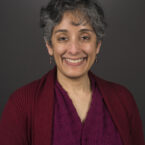Objective
To determine the feasibility of conducting a randomized controlled trial (RCT) of corticosteroids in pediatric septic shock.
Design
Randomized, double-blind, placebo controlled trial.
Setting
Seven tertiary level, pediatric intensive care units (PICUs) in Canada.
Patients
Children aged newborn to 17 years inclusive with suspected septic shock.
Intervention
Administration of intravenous hydrocortisone versus placebo until hemodynamic stability is achieved or for a maximum of seven days.
Measurements and Main Results
174 patients were potentially eligible of whom 101 patients met eligibility criteria. Fifty-seven patients were randomized and 49 patients (23 and 26 patients in the hydrocortisone and placebo groups respectively) were included in the final analysis. The mean time from screening to randomization was 2.4 ± 2.1 hours and from screening to first dose of study drug was 3.8 ± 2.6 hours. Forty-two percent of potentially eligible patients (73/174) received corticosteroids prior to randomization: 38.5% (67/174) were already on corticosteroids for shock at time of screening and in 3.4% (6/174), the treating physician wished to administer corticosteroids. Six of 49 randomized patients (12.2%) received open-label steroids, three in each of the hydrocortisone and placebo groups. Time on vasopressors, days on mechanical ventilation, PICU and hospital length of stay and the rate of adverse events were not statistically different between the two groups.
Conclusions
This study suggests that a large RCT on early use of corticosteroids in pediatric septic shock is potentially feasible. However, the frequent use of empiric corticosteroids in otherwise eligible patients remains a significant challenge. Knowledge translation activities, targeted recruitment and alternative study designs are possible strategies to mitigate this challenge.
Lead Researchers
-
Kusum Menon
Senior Scientist, CHEO Research Institute
-
Dayre McNally
Senior Scientist, CHEO Research Institute
Researchers
-
Kusum Menon
Senior Scientist, CHEO Research Institute
-
Dayre McNally
Senior Scientist, CHEO Research Institute


